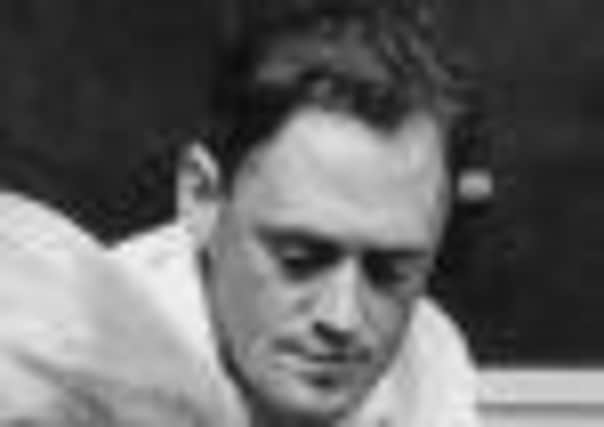Obituary: Professor William Jarrett FRS, FRSE, leading veterinary researcher whose work gave insight into both leukaemia and HIV


WILLIAM Jarrett was one of the most distinguished veterinary pathologists of his generation and became internationally renowned for his discovery in 1964 of the retrovirus that causes leukaemia and lymphoma in domestic cats. But such was the quality of his research – encompassing various related subjects such as viral and parasitic diseases – that his findings led to breakthroughs in human and veterinary medicine.
William Fleming Hoggan Jarrett (known as Bill), although born in Glasgow, was brought up near Cumbernauld, Lanarkshire where his father farmed.
Advertisement
Hide AdAdvertisement
Hide AdHe attended Lenzie Academy and went straight from school to Glasgow Veterinary College, graduating with honours in 1949 and winning the Gold Medal.
His subsequent postgraduate research led to him being quickly recognised for his diagnostic abilities and his ground-breaking research. Jarrett became one of the most respected pathologists, both in the fields of animal and human diseases.
Jarrett held several important posts at Glasgow University after graduating, firstly as a lecturer at the Department of Veterinary Pathology in 1952, then head of Hospital Pathology and finally Reader in Pathology from 1962 to 1965.
He was appointed titular Professor of Veterinary Medicine in 1964.
While writing his PhD, Jarrett joined William Weipers at the new vet school in Glasgow, which had been formed in 1949. The research concentrated on bronchitis in calves which was then a major illness in south-west Scotland.
Their research led to the creation of the vaccine Dictol, which is still in use today. The vaccine was widely used in Africa and this led to Jarrett joining an international team to establish a veterinary school in Nairobi, in Kenya.
While there, his innovative work into the cause of fever in cattle provided the basis for future vaccine developments.
After his year in Africa Jarrett returned to Glasgow when his research interests lay principally in the fields of tumours, viruses, leukaemia and immunology.
Advertisement
Hide AdAdvertisement
Hide AdHis identification of the feline leukaemia virus laid the groundwork for the discovery of the human leukaemia virus and the HIV virus.
This research led Jarrett to further join forces with the American biomedical researcher Robert Gallo and together they carried out key studies into T-cell tumours in humans.
Their work led to the discovery of the human leukaemia virus, HTLV.
After the year in Washington with Gallo, Jarrett became a member of the Aids programme of the UK Medical Research Council, which established a research group that used feline immunodeficiency virus as a model for HIV vaccination. Jarrett’s questioning and scholarly mind greatly assisted in the work to combat the virus that causes Aids.
In 1968, Jarrett was appointed Professor of Veterinary Pathology at Glasgow, a post he held with much distinction for 22 years. His quest for knowledge never ceased and in the mid-1970s he investigated the reasons for cancer in cattle in some parts of Scotland.
He concluded that the eating of bracken was the cause and this research, in turn, led Jarrett to develop a vaccine that was the forerunner for treating cervical cancer in women. Jarrett retired in 1990 and his eminent career was honoured with many honorary degrees (notably the universities of Stirling and Edinburgh) .
The respect with which he was held by his colleagues was evidenced by the many scientific societies throughout the world which gave him lifetime achievement awards and medals.
He was elected a Fellow of the Royal Society of Edinburgh in 1965 and a Fellow of the Royal Society in 1980. In 1989, Jarrett was awarded the Scottish Science Award for his research in the fields of cancer and Aids. But Jarrett’s lasting legacy is to be seen at the Glasgow Veterinary School, which has expanded dramatically and now has an international reputation.
Advertisement
Hide AdAdvertisement
Hide AdIt is the largest research institute of comparative medicine in the UK with a particular focus on virology and oncology.
Jarrett was universally admired by his colleagues for his academic expertise but also for his charm, courtesy and wit.
He devoted much time to encouraging students and followed their careers with much interest. He and his wife were outdoor enthusiasts and were particularly fond of climbing in the Highlands in all weathers.
They were keen sailors and much enjoyed sailing up the west coast of Scotland in the summer. In the winter Jarrett was an avid skier – especially in Glen Coe. Another life-long interest was music.
Such pursuits were sadly curtailed ten years ago as a result of their ill-health. His wife Anna _ who he had married in 1953 – died of a stroke last year and he was diagnosed with Parkinson’s disease.
Jarrett faced up to her death and his own illness with typical courage. He is survived by their two daughters.